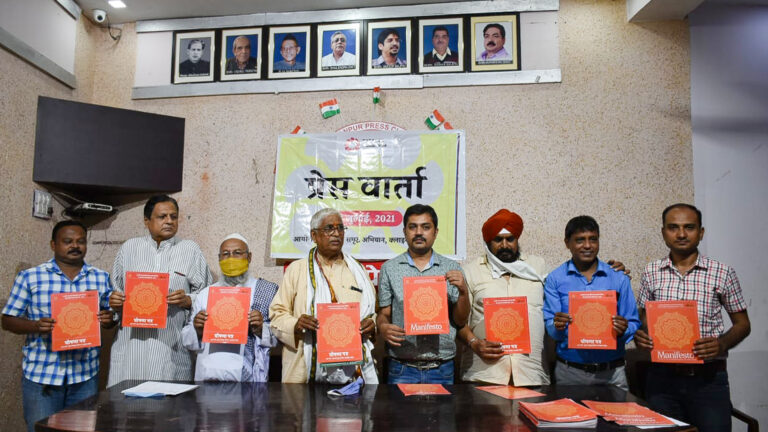Faith Accelerating Climate Action!
We aim to bring Faith into Direct Action where Interfaith leaders of the region:
● Envision a stable climate where humans live in a right and just relationship, interconnected with a healthy, thriving, natural world and
● Inspire and mobilize people of faith and conscience to take bold and just action on climate change.
Faith has a deep rooted relationship with ordinary lives as well as formation of urban settlements. Faith is an integral part of the day to day life of an ordinary Indian. It holds strong influence on one’s decision making on possibly all fronts. The power of justice, courage, hope and love which are already inbuilt in one’s Faith strengthen this influence with every passing day.
While India’s urban places might often be considered as being noisy, polluted and overcrowded concrete jungles, those areas have rich religious cultural heritage. Cities are multi-faceted and multi-sector systems with many moving parts, with religion and faith being factors that play an important role in the cultural and socio-economic prosperity within cities.
Since the beginning of time, religions have significantly influenced the way cities are constructed and function. Cities were established around houses of worship that provided essential services and today, multiple religious markers are scattered around every city around the world, ranging from temples to cathedrals, mosques, synagogues, charity shops, schools, monuments of remembrance, gardens and parks, cemeteries, and others.
Often, the real power and influence that religions have on the cities and their dwellers are undermined. However, on a global scale, religious institutions own around 8% of habitable land, as well as more than 50% of educational institutions, mostly in cities. Additionally, houses of worship and other religious locations are important sources of socio-economic activity, as yearly pilgrimages and religious vacation tours bring millions of people to various cities around the world. Consequently, these institutions shape the economy and behaviour
of people living in urban areas.
Faith also has a deep-rooted social function, uniting people in urban areas and creating communities that practise, celebrate, mourn, remember, and reflect together, while also providing support to those in need. Hence, faith groups within the climate campaigns will also be able to address much needed lift to diversity, equity and inclusion goals.

Engagement with faith leadership so far:
The Interfaith Network for Climate Action in Uttar Pradesh was formed in 2016-17. Since its formation, it’s been an inherent part of the 100% UP Network where other CSOs and Institutions are working hand in hand for sustainable development, cleaner planet and stable climate in the state.
The network has successfully expanded itself across major cities in Uttar Pradesh. The state is already a home to cities like Varanasi, Mathura, Aligarh, Prayagraj, Agra, Gorakhpur where Faith institutions have strong presence. Most of these institutions have been aligned with The Climate Agenda’s core objectives of a diversity and equity based inclusive climate action.
These Faith institutions have contributed a lot in most of the climate wins so far in Uttar Pradesh. Glimpses of those collective efforts are reflected below:
Suraj Se Samriddh Work:
Background: This campaign was solely based on presenting Uttar Pradesh as an a malgamation of diverse identities and communities. This was needed because the state Government had announced a Solar City Scheme in 2020 which said to solarize 5 cities of the state that are known for a single religious identity. The Climate Agenda ran a campaign which demanded the government to look at the state’s diversity in religious and cultural practices and re-notify the announcement with adding at least 4 more cities to ensure inclusion in policy formation.
Later, with the help of our Interfaith Network, the Cultural Artists’ communities and partner CSOs and other volunteer groups, the campaign successfully got the policy re-notified and now the government has agreed to solarize 20 cities across religious and cultural boundaries.
Covid Work:
WHen the global pandemic began to impact the world in March 2020, the demand for mental health services increased noticeably. Communities around the world have faced immense challenges – unemployment, lockdowns, restricted access to places of worship and the lack of physical contact with family members, friends and colleagues. Anxiety, fear and stress are normal when we are faced with uncertainty and the unknown. The pandemic has significantly changed our daily lives, our routines, restricted our movements and our innate coping mechanisms. Those challenges trigger mental health conditions or exacerbate existing ones. Yet, unfortunately, many communities have limited access to health services and mental health support, and according to a WHO Survey, the pandemic has disrupted or halted critical mental health services in 93% of 130 countries worldwide.
Around the world, faith actors had been on the frontlines and our Interfaith Network of Uttar
Pradesh also contributed to its best.
EV Policy Work
Solar Policy Work
An Integral Part of the 100 % UP Network.
In Numbers!
